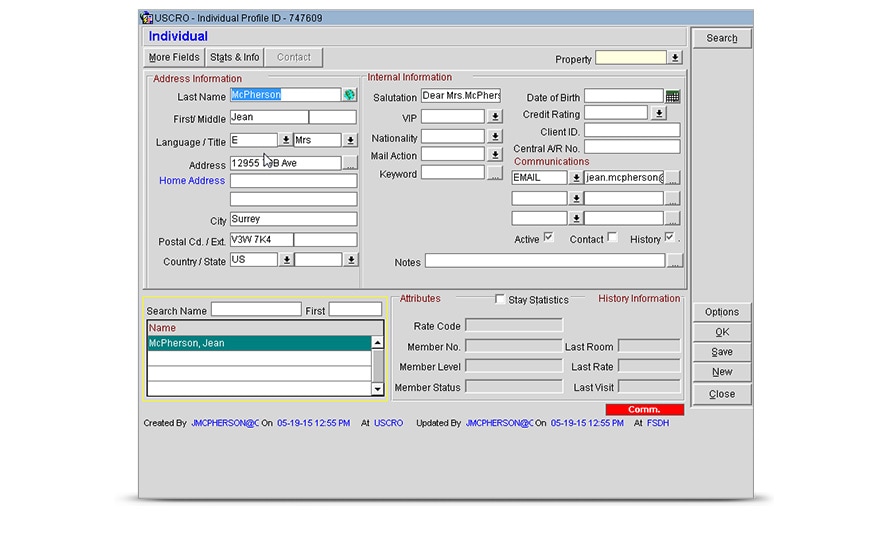Opera is a secure, innovative browser used by millions around the world with a built-in ad blocker, free VPN, units converter, social messengers, battery saver and much more - all for your best browsing experience.
Microsoft visual foxpro. I have recently updated the Requests package for Python (I also installed WireShark around the same time, but I'm not sure if that's relevant). Since doing this, whenever I try and execute a Python file from the command line that imports the Requests library, I receive a pop up on screen stating 'Cannot locate the Microsoft Visual FoxPro support library'.
Of the The words of an opera are known as the (literally 'small book'). Some composers, notably Wagner, have written their own libretti; others have worked in close collaboration with their librettists, e.g. Traditional opera, often referred to as ', consists of two modes of singing:, the plot-driving passages sung in a style designed to imitate and emphasize the inflections of speech, and (an 'air' or formal song) in which the characters express their emotions in a more structured melodic style. Vocal duets, trios and other ensembles often occur, and choruses are used to comment on the action. In some forms of opera, such as,,, and, the recitative is mostly replaced by spoken dialogue. Melodic or semi-melodic passages occurring in the midst of, or instead of, recitative, are also referred to as. The terminology of the various kinds of operatic voices is described in detail.
During both the Baroque and Classical periods, recitative could appear in two basic forms, each of which was accompanied by a different instrumental ensemble: secco (dry) recitative, sung with a free rhythm dictated by the accent of the words, accompanied only by, which was usually a and a cello; or accompagnato (also known as strumentato) in which the orchestra provided accompaniment. Over the 18th century, arias were increasingly accompanied by the orchestra. By the 19th century, accompagnato had gained the upper hand, the orchestra played a much bigger role, and Wagner revolutionized opera by abolishing almost all distinction between aria and recitative in his quest for what Wagner termed 'endless melody'.
Subsequent composers have tended to follow Wagner's example, though some, such as Stravinsky in his have bucked the trend. The changing role of the orchestra in opera is described in more detail. History [ ] Origins [ ]. The Italian word opera means 'work', both in the sense of the labour done and the result produced. The Italian word derives from the Latin opera, a singular noun meaning 'work' and also the plural of the noun. According to the, the Italian word was first used in the sense 'composition in which poetry, dance, and music are combined' in 1639; the first recorded English usage in this sense dates to 1648.
By was the earliest composition considered opera, as understood today. It was written around 1597, largely under the inspiration of an elite circle of literate who gathered as the '. Significantly, Dafne was an attempt to revive the classical, part of the wider revival of antiquity characteristic of the. The members of the Camerata considered that the 'chorus' parts of Greek dramas were originally sung, and possibly even the entire text of all roles; opera was thus conceived as a way of 'restoring' this situation. Dafne, however, is lost. A later work by Peri,, dating from 1600, is the first opera score to have survived to the present day. The honour of being the first opera still to be regularly performed, however, goes to 's, composed for the court of in 1607.
The Mantua court of the, employers of Monteverdi, played a significant role in the origin of opera employing not only court singers of the (till 1598), but also one of the first actual 'opera singers';. Italian opera [ ].
(, 1747, ) Opera did not remain confined to court audiences for long. In 1637, the idea of a 'season' () of publicly attended operas supported by ticket sales emerged in. Monteverdi had moved to the city from Mantua and composed his last operas, and, for the Venetian theatre in the 1640s.


His most important follower helped spread opera throughout Italy. In these early Baroque operas, broad comedy was blended with tragic elements in a mix that jarred some educated sensibilities, sparking the first of opera's many reform movements, sponsored by the, which came to be associated with the poet, whose helped crystallize the genre of, which became the leading form of Italian opera until the end of the 18th century. Once the Metastasian ideal had been firmly established, comedy in Baroque-era opera was reserved for what came to be called. Before such elements were forced out of opera seria, many libretti had featured a separately unfolding comic plot as sort of an 'opera-within-an-opera.' One reason for this was an attempt to attract members of the growing merchant class, newly wealthy, but still not as cultured as the nobility, to the public. These separate plots were almost immediately resurrected in a separately developing tradition that partly derived from the, a long-flourishing improvisatory stage tradition of Italy.
Blog
- Die Siedler 3 Gold Edition No Cd Crack
- Mortal Kombat 9 Pc Highly Compressed Games Under 50mb
- Download Shivji Bhajans Of Gulshan Kumar
- Windows Vista Full Desatendido Sp2 San Jose
- Bileti Pdd Harjkov 2013
- Savita Bhabhi Story In Hindi Pdf Online
- Utilita Samsung Home 941
- Mfc Rich Edit Control Image
- Ca Erwin Data Modeler R73 Crack
- Kod Sbrosa Pampersov Printerov Epson Dlya Programmi Printhelp